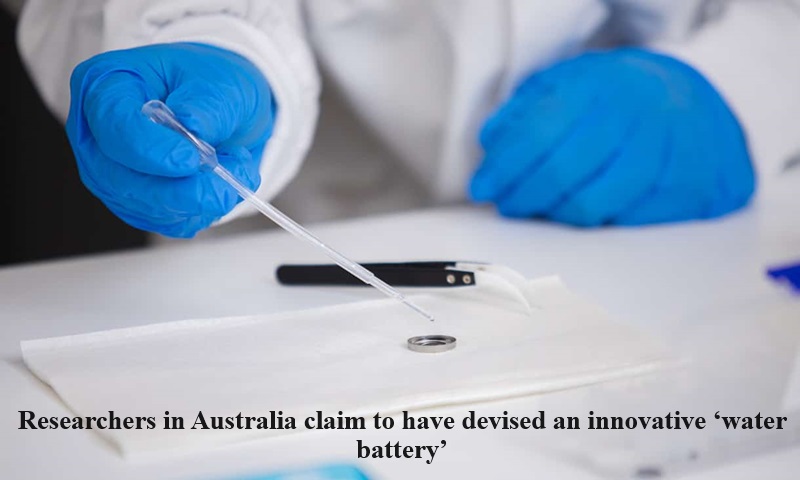
Australian researchers claim to have developed an innovative “water battery” that eliminates the need for a flammable electrolyte, representing a significant advancement in energy storage technology. This groundbreaking development not only offers an alternative for storing renewable energy but also aims to supplant conventional lithium-ion batteries, which are deemed less safe.
Lead author Professor Tianyi Ma of RMIT University described the technology as aqueous metal-ion batteries, also known as water batteries.
Water batteries offer enhanced safety compared to traditional batteries due to their unique composition. Unlike conventional electrolytes, which are flammable, water-based batteries utilize water mixed with simple salts. Additionally, these batteries utilize metals such as magnesium or zinc, which are both cost-effective and environmentally friendly alternatives to lithium or lead-acid batteries.
One of the primary advantages of water-based batteries is their ability to mitigate dendrite growth, a common issue in battery technology. Dendrites are microscopic metal protrusions that can trigger short circuits in batteries. To address this concern, scientists have coated the battery’s anode with bismuth metal, which forms a protective layer similar to rust when oxidized.
This protective coating significantly extends the lifespan of the battery, with prototypes retaining over 85 percent of their capacity even after undergoing 500 charge and discharge cycles, a point at which most lithium-ion batteries typically degrade.
Professor Ma highlighted the durability of these batteries, noting that they now exhibit longevity comparable to commercially available lithium-ion batteries, rendering them suitable for high-speed and intensive applications in real-world scenarios.

Post Your Comments